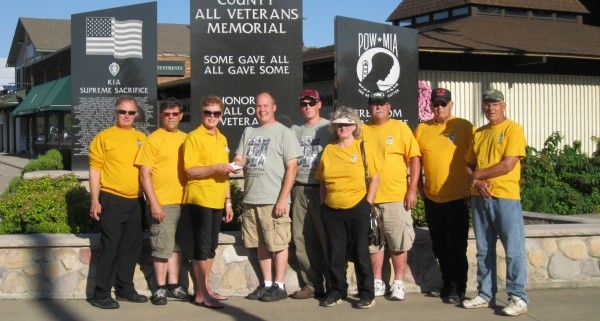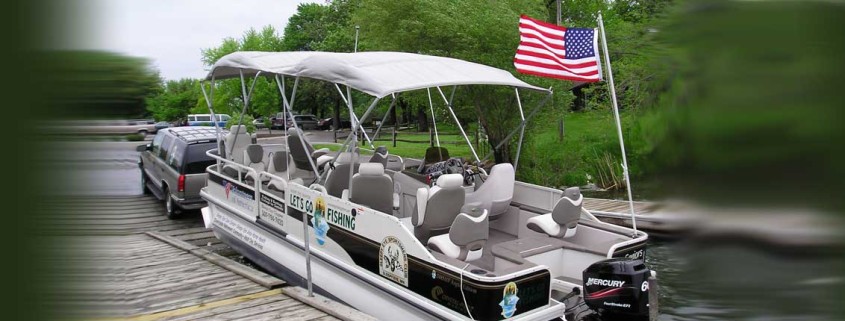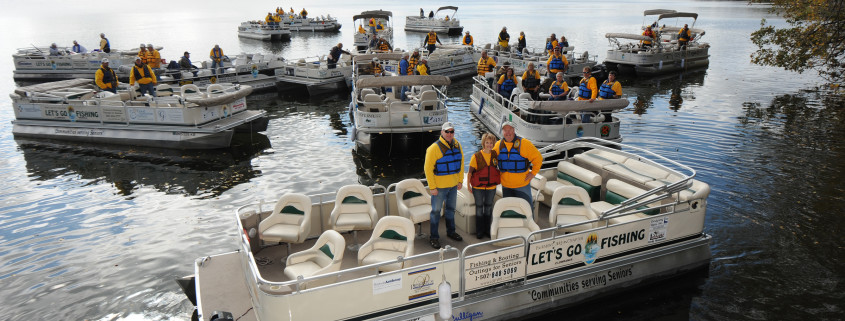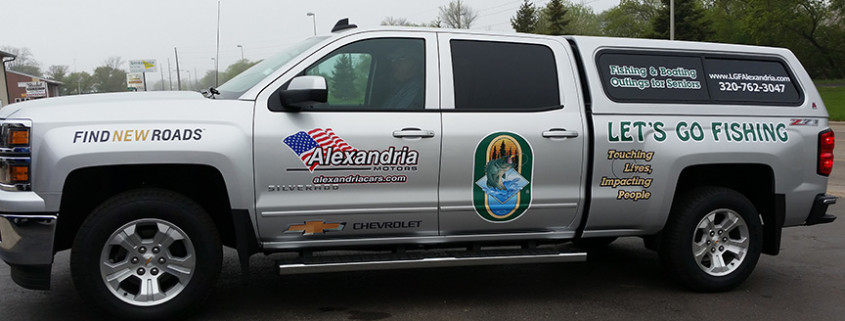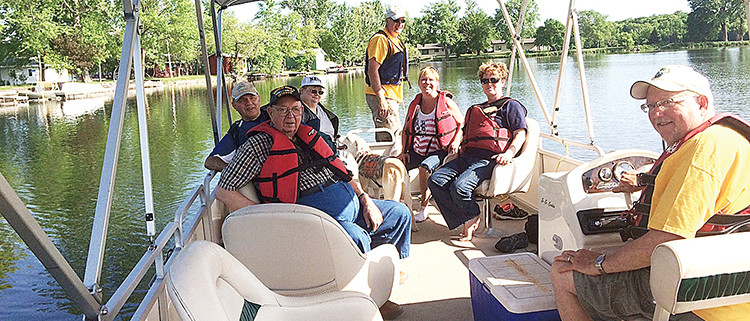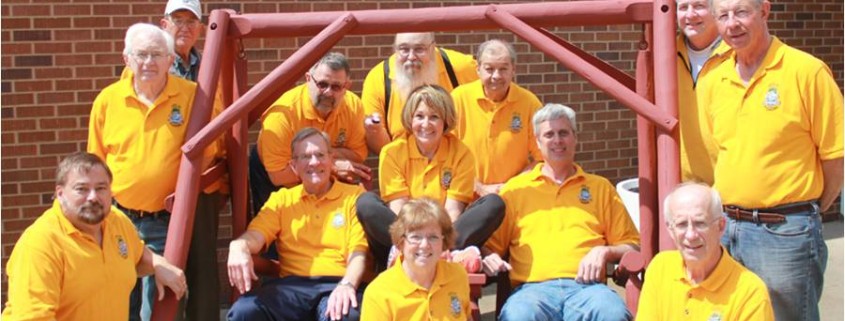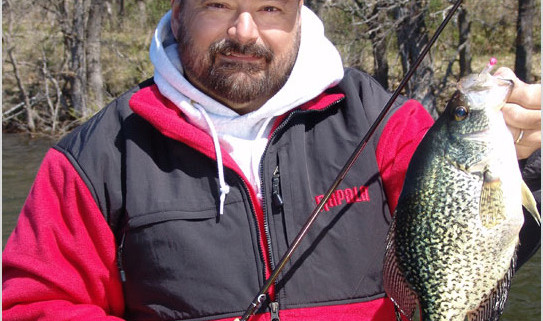By Vicki Gerdes, Detroit Lakes Newspapers, April 22, DETROIT LAKES — There may still be some snow on the ground, but Let’s Go Fishing’s Detroit Lakes Area Chapter has nevertheless begun booking trips for the 2015 summer season.
“We’ve booked over 50 trips already,” said Dave Hochhalter, chapter treasurer and past president. “Last year we had 128 (total) trips, and this year our goal is 130.”
With just one pontoon, the total number of trips taken per season has “kind of stabilized,” Hochhalter added, noting that while some larger chapters have two (or more) pontoons, “We’ve decided to stay with one for now.” The reason, of course, is that the specialized type of pontoon needed for the Let’s Go Fishing excursions — handicap accessible, with added stability for better passenger safety — can be quite expensive.
In fact, as the Detroit Lakes chapter’s current pontoon is going on eight years old now, replacement or refurbishing has become a concern as well, Hochhalter noted. Still, the current pontoon “gets the job done,” he added. And it certainly helps that so many local businesses and service organizations provide donations and in-kind services to keep the boat running.
Holiday Inn in Detroit Lakes donates a boat slip to house the pontoon each season, while At Ease Dock & Lift contributes the boat lift at no cost as well.
“We have a new solar-powered lift this year,” Hochhalter said, with an engine for lifting and lowering the pontoon “so our volunteers don’t have to crank it up by hand anymore.”
Cenex also provides “most of the gas” for the organization’s boat excursions, and a variety of other businesses, individuals and community organizations contribute as well, Hochhalter noted. Of course, as the chapter is staffed entirely with volunteer labor, more volunteers are always needed, he added.
“Right now we have about 70-80 volunteers on our roster, but only about half of those are active,” Hochhalter said. A particular area of need is pontoon operators — “we call them captains,” Hochhalter said, as well as “first mates” to assist them with both fishing and scenic excursions.
“We can use all the help we can get, even if it’s only for a few trips here and there to ease up on our regulars,” he explained. LGF provides volunteer training for pontoon captains and first mates to ensure a safe and comfortable experience on the Let’s Go Fishing pontoon, Hochhalter said. The next training session is scheduled for Tuesday, May 19 at 6:30 p.m. in the Detroit Lakes Library. There is no cost to attend, but pre-registration is requested.
Board members are also needed to help keep the organization running year-round, along with volunteers for the annual Walk for Let’s Go Fishing and other fundraising activities. With this summer’s calendar already filling up rapidly, area senior care facilities, veteran’s organizations, youth groups, and group homes are encouraged to begin pre-scheduling their fishing or scenic boating trips now, before availability becomes limited.
The online calendar is located at the LGF website, www.lgfws.com. To find information on the local chapter, go to LGF Chapters, click on active chapters, click on Detroit Lakes Area, and click on the calendar link, which will show the dates booked and those dates still available for booking.
Send trip requests by email to letsgofishingdl@ gmail.com (include the date and time requested). If you do not have email you can call trip scheduler Kris Tovson at 218-849-3914. The chapter will then respond with a yes or no as to whether the date and time is confirmed. Last summer, Let’s Go Fishing’s Detroit Lakes Are Chapter served 945 guests on 128 pontoon fishing and scenic trips.
“We expect to serve our 5,000th guest sometime this summer,” Hochhalter said.
With 27 chapters in Minnesota alone — and chapters in Wisconsin, Arizona, South Dakota and Colorado in their fledgling or formative stages — Let’s Go Fishing is a non-profit organization that’s all about serving people. It enriches people lives by providing on the water experiences for those they serve. These trips are provided at no cost due to the generous support from businesses, organizations, and individuals. For more information on volunteering or supporting Let’s Go Fishing please call Chapter President Tim Miller, 218-846-1444; Dave Hochhalter, 218-847-5670; or Kris Tovson, 218-849-3914… Read the full story at dl-online.com…


